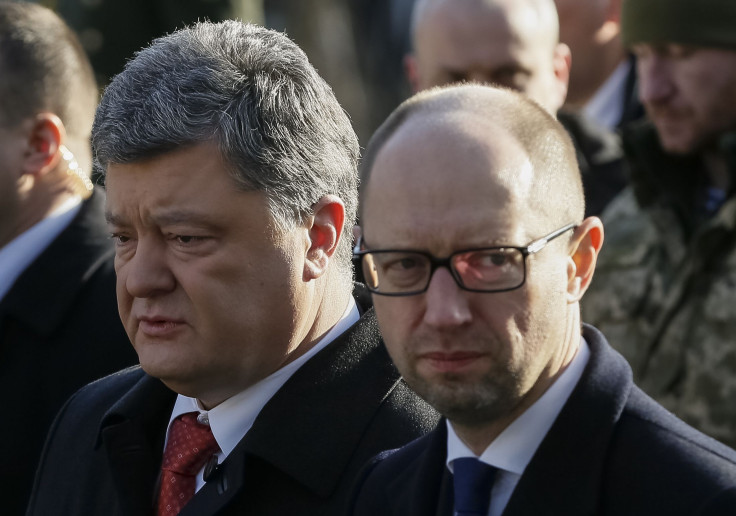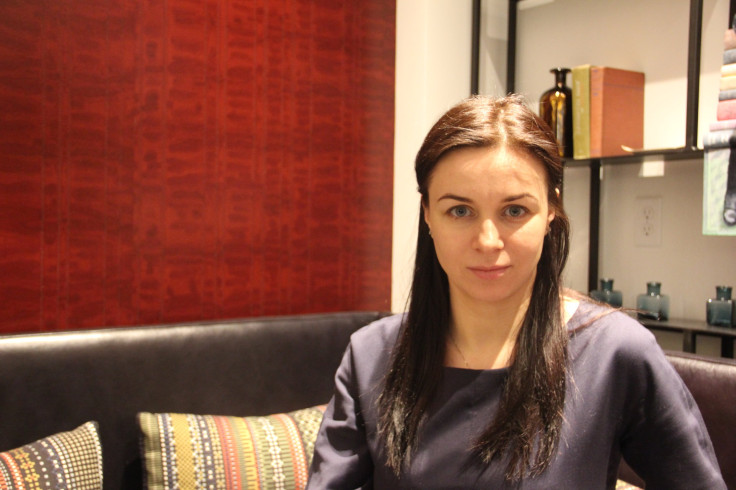Ukraine Economic Crisis 2016: As IMF Loan Stalls, Young Politicians Struggle To Push Through Reforms

It’s already been a busy week for Nataliya Katser-Buchkovska. The young member of Ukraine’s parliament wrapped up a meeting at the United Nations on sustainable development Tuesday and was headed to Texas soon for an important energy summit. She wants to overhaul the notoriously corrupt energy sector in her country, where growing political uncertainty looms as the International Monetary Fund delays aid payments.
“The political situation is quite tense at the moment. There are fractions within the parliament that want to destabilize the coalition and their aim is early elections,” said Katser-Buchkovska, 33, in an interview with International Business Times. “The Ukrainian economy is weak and people are suffering from the financial crisis.”
The IMF’s $40 billion aid package to Ukraine was made contingent on implementing reforms to strengthen an economy that last week saw its currency hitting lows not seen in nearly a year. But with the possibility of a new round of elections coupled with the economy minister's resignation and allegations of corruption against President Petro Poroshenko and his allies, a growing political storm has raised doubts among Ukraine's Western partners about whether it can follow through on its promises.
“I think their [the IMF] approach is not political, but they will wait until it becomes clear who the executive authorities are and whether these authorities will take the responsibility to fulfill the conditions under which they have already provided us with $6.7 billion,” Finance Minister Natalia Yarseko said on Ukrainian TV, according to Reuters.
Katser-Buchkovska is part of the vanguard of young, well-educated Ukrainians who entered politics after the country’s revolution in 2014 ousted former Moscow-leaning President Viktor Yanukovych. She left behind a private sector business-consulting career to enter politics in November 2014 as a member of Prime Minister Arseniy Yatsenyuk’s political party People’s Front. Yatsenyuk himself threatened last week to resign from his post if a government reshuffle takes place.

But Katser-Buchkovska, who only three months after giving birth to her son was working as the head of both the parliament’s subcommittee on sustainable development, strategy and investments as well as an inter-party deputy group on the “attraction and protection of investments,” does not want to use the word “crisis.” She believes various political parties can come to an agreement and salvage the reforms made so far, especially as the country still faces a conflict against Russian-backed separatists in the Donbass region.
“New elections would be a big problem for Ukraine – it would be four or six months of political instability and that’s time lost for reforms and political stability. At the moment we have reached the point when our economy stabilized, our currency stabilized … we can’t lose these gains at the moment at the price of some ambitions,” she said.
Abromavicius, the economy minister, pointed to oligarchs meddling in state-owned corporations, especially in the lucrative energy sector, as part of the reason for his resignation.
“A lot of good things have been done, but unfortunately change is not yet irreversible,” Abromavicius said in an interview with the Financial Times. “What is very worrying is that some of the old forces are trying to unravel a lot of the good things.”
Some positive reforms have been made since Poroshenko came to power, including making public procurement a transparent process to help fight corruption and passing legislation for a National Anti-Corruption Bureau. But the policy changes have not been fully implemented with sectors such as the country's judiciary still needing deep transformation.
Even while working to enact reforms in the country’s gas market, Katser-Buchkovska openly admits she isn’t happy with the pace of reforms in the country’s judicial sector. But she never thought changes would be made overnight, as some politicians promised, and expects many reforms in the energy sector will be visible in the coming years.
“Of course there is an oligarchic influence on this market. The market was captured and now we are changing the rules and … our aim is to make the rules as transparent as can be,” said Katser-Buchkovska. “Reforms, especially in the energy sector, are one step forward two steps back … we do not have any excuse to say everything is bad, it’s not an easy task.”
Ahead of her travels to Houston for the CERA Week Energy conference, Katser-Buchkovska said she plans to discuss the legislation that has started to break up monopolies in the gas market, the opportunities that now exist for international gas traders and extraction companies and Ukraine’s decreased energy dependence on Russia. She is already thinking of the future and the work she wants to accomplish in clean and sustainable energy.
“I’m always optimistic. No one promised it would be easy because it’s politics,” said Katser-Buchkovska. “I didn’t have any illusions that everything would be very smooth and we would succeed in a short time.”
© Copyright IBTimes 2024. All rights reserved.












